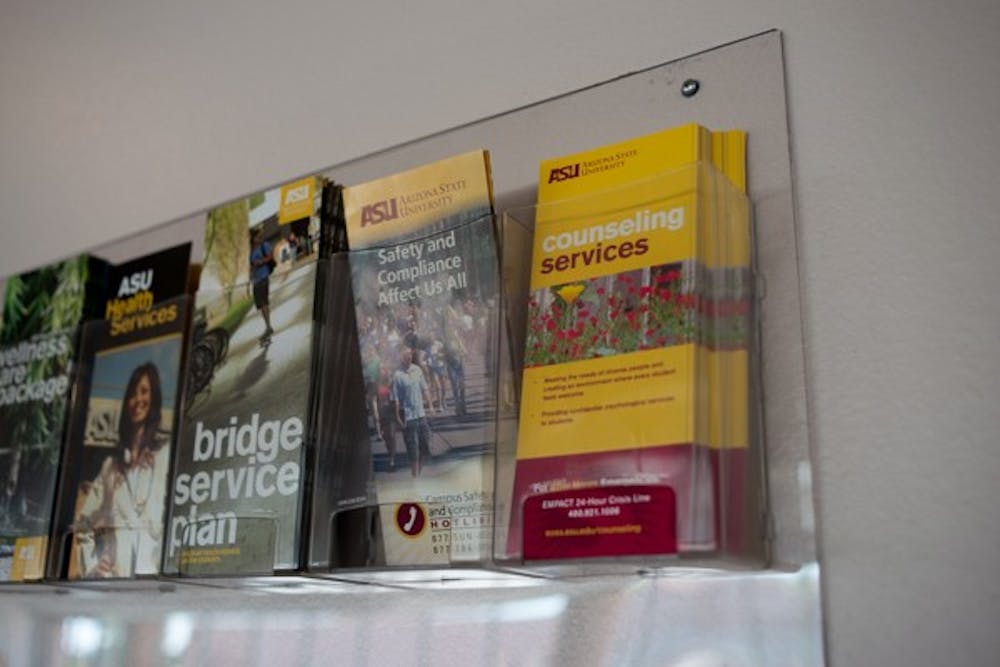The semester is winding down and you may be stressing out. Are you feeling anxious about something or feel that you need to get a few things off your chest? This week is Mental Health Awareness Week, so take a few minutes to learn a few mental health facts and about the resources ASU has to offer.
The following facts have been reported by the National Alliance on Mental Illness.
1 in 5 adults in the U.S. experiences mental illness in a given year
In other words, over 43 million or 18.5 percent of adults are affected by mental illness.
1 in 5 youth experiences a severe mental disorder in their life
Mental health problems are just as prevalent among youth. About 21.4 percent of youth aged 13 to 18 and 13 percent of children 8 to 15 experience mental illness.
What about college students?
- 1 in 4 students has a diagnosable illness
- 40 percent do not seek treatment
- 80 percent feel overwhelmed by their responsibilities
- 50 percent have struggled in school due to anxiety
What are some mental illnesses college students may encounter?
Depression
According to a survey conducted by the Association for University and College Counseling Center Directors, depression is one of the most common mental illnesses and it affects approximately 36.4 percent of college students in the U.S.
What are some symptoms of depression?
Symptoms vary from person to person, but these are a few common ones according to the National Institute of Mental Health.
- Speaking and thinking slower
- Loss of interest in activities and social events
- Fatigue, lack of energy, feeling sleepy
- Lack of concentration
- Feeling guilty or angry over past failures
- Feelings of restlessness and irritability
Anxiety
Another common mental illness found in college students is anxiety. Understandably, students have a lot to balance and it is not uncommon to feel overwhelmed with responsibilities.
What are some symptoms of anxiety?
According to the Mayo Clinic, the following are a few common symptoms of anxiety.
- Feeling nervous or powerless
- Increased heart rate
- Rapid breathing
- Feeling weak or tired
- Trouble concentrating
- Having a sense of impending danger, panic or doom
Eating Disorders
The National Association of Anorexia and Associated Disorders reports that people aged 12 to 25 represent 95 percent of those with eating disorders. Eating disorders are another mental illness that affects college students and female students in particular. According to the Association, 25 percent of college women binge and purge to manage their weight. Common disorders include anorexia, bulimia and binge eating.
What are some symptoms of eating disorders?
The following is a list of general symptoms reported by the Mayo Clinic.
- Eating in secret
- Skipping meals or making excuses to not eat
- Withdrawing from normal social activities
- Excessive exercise
- Expression of depression, disgust, shame or guilt about eating habits
- Loss of tooth enamel due to repeated vomiting
- Leaving during meals to use the bathroom
Addiction
The National Institute on Alcohol Abuse and Alcoholism reports that about 80 percent of college students drink, approximately 50 percent of those are binge drinkers and 1,825 students aged 18 to 24 die annually from alcohol-related injuries.
What are some symptoms of addiction?
According to the Mayo Clinic, the following is a list of common symptoms of addiction.
- Feeling to use the drug regularly — daily or several times a day
- Having intense urges for the drug
- Focusing more time and energy on getting and using the drug
- Needing more of the drug to get the same effect
- Driving or performing other risky activities while on the drug
- Failing to stop using the drug
What are some resources available on campus and online to help treat these illnesses?
Counseling
If you know of anyone who you feel may be experiencing a prolonged episode of any of these common mental illnesses, consider referring them to ASU Counseling services. ASU Counseling Services has offices on all campuses and welcomes all students. You will be able to speak with a highly trained counselor at no charge for your first appointment. Don't worry about what you disclose to the counselors, as their records are confidential. They are there to help you.
If one-on-one counseling is not for you, ASU Counseling Services provides other resources such as group counseling and crisis services.
ASU Wellness
If you feel you are addicted to a substance or have a physical illness linked to a mental disorder, ASU Wellness provides several resources. ASU Wellness provides services to students who are struggling with depression or suicidal thoughts, eating disorders, sleep disorders, sexual abuse, body image and other issues.
Reach the reporter at anicla@asu.edu or follow @AndrewNiclaASU on Twitter
Like The State Press on Facebook and follow @statepress on Twitter.




